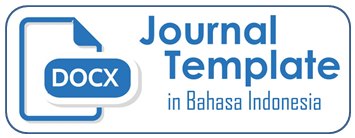GENDER-BASED TAX POLICIES: ENSURING RIGHTS FOR WORKING MOTHERS AND A HEALTHY GENERATION
DOI:
https://doi.org/10.26486/jramb.v11i1.4561Abstract
This article discusses how income tax incentives can support the success of exclusive breastfeeding programs while simultaneously increasing female labor force participation in Indonesia. Using a qualitative approach based on literature studies, this research analyzes the implementation of gender-based tax policies in several countries, particularly Malaysia, and explores their relevance to Indonesia. The findings indicate that tax policies that consider the economic burden of working mothers—such as tax deductions for breastfeeding and childcare expenses, as well as tax exemptions for women returning to work after a career break—have the potential to improve family welfare and economic productivity. This policy formulation not only supports the success of exclusive breastfeeding as part of the Sustainable Development Goals (SDGs) agenda but also contributes to increasing the female labor force participation rate. However, implementing these policies faces challenges such as administrative constraints, limited workplace support facilities, and persistent gender stereotypes in society. Therefore, cross-sectoral synergy is needed in designing more inclusive and sustainable tax policies to eliminate structural barriers for working women. This study has significant theoretical and practical implications for designing a fair and gender-responsive tax system. Theoretically, it expands the understanding of how social justice principles and the recognition of reproductive labor can be integrated into fiscal theory while also highlighting the intersection between tax policy and family welfare. From a policy perspective, the findings support the need for tax reforms that provide specific deductions or incentives for working mothers and promote childcare and child health services as strategic investments for future generations. Socioeconomically, gender-sensitive tax policies have the potential to increase female labor force participation, strengthen children's rights, and reduce gender inequality within households.
References
Aziz, M. (2023). Women’s Double Burden in the Family Between Culture and Discrimination. Potret Pemikiran, 27(2), 227. https://doi.org/10.30984/pp.v27i2.2782
Basrowi, R. W., Darus, F., Partiwi, I. G. A. N., Sutanto, L. B., Sulistomo, A., Soemarko, D. S., Wasito, E., Sundjaya, T., & Pratiwi, D. (2024). The Strategic Effort to Ensure Successful Breastfeeding Practice in the Workplace: An Indonesian Expert Opinion. The Open Public Health Journal, 17(1), 1–7. https://doi.org/10.2174/0118749445291278240305073733
Batjo, S. H., Hadiha, H., Muliani, M., & Radjulaini, Z. (2023). Efforts of Government Institutions to Support Exclusive Breastfeeding Among Civil Servants. Poltekita, 17(3), 829–837. https://doi.org/10.33860/jik.v17i3.2100
Beghini, V., Cattaneo, U., & Pozzan, E. (2019). A quantum leap for gender equality: For a better future of work for all. International Labour Organization.
Beloskar, V. D., Haldar, A., & Gupta, A. (2024). Gender equality and women’s empowerment: A bibliometric review of the literature on SDG 5 through the management lens. Journal of Business Research, 172. https://doi.org/10.1016/j.jbusres.2023.114442
Bengough, T., Dawson, S., Cheng, H.-L., McFadden, A., Gavine, A., Rees, R., Sacks, E., & Hannes, K. (2022). Factors that influence women’s engagement with breastfeeding support: A qualitative evidence synthesis. Maternal & Child Nutrition, 18(4), e13405. https://doi.org/10.1111/mcn.13405
Dieu, F. (2024). Women ’s Rights and Femininity in the French Revolution ( 1789-1794 ). Alcumena, 1(1). https://doi.org/10.34813/psc.1.2024.2
Diyono, A. S., Vambia, A. D., & Manihuruk, J. B. (2016). Gender-Leading Opportunities For Women Tax Policy: A Strategic Tax Policy Framework To Address Gender Wage Disparities In Indonesia. JAM, 36(1), 1–23.
Dwi, D., Qomariah, N., & Nyoman Putu Martini, N. (2024). The Roles of Tax Morale, Tax Fairness, and Tax Simplicity in Enhancing Tax Compliance Behavior Through Tax Compliance Intention at The Jember Tax Office. International Journal of Management Science and Information Technology, 4(2), 246–256. https://doi.org/10.35870/ijmsit.v4i2.2785
Filho, W. L., Kovaleva, M., Tsani, S., Țîrcă, D.-M., Shiel, C., Dinis, M. A. P., Nicolau, M., Sima, M., Fritzen, B., Lange Salvia, A., Minhas, A., Kozlova, V., Doni, F., Spiteri, J., Gupta, T., Wakunuma, K., Sharma, M., Barbir, J., Shulla, K., … Tripathi, S. (2022). Promoting gender equality across the sustainable development goals. Environment, Development and Sustainability, 1–22. https://doi.org/10.1007/s10668-022-02656-1
Fitriani, D., Sartika, M., & Sayekti, W. N. (2024). The Role of Family and Workplace Support in Sustaining Exclusive Breastfeeding Among Working Mothers : A Scoping Review. Journal of Current Health Sciences, 4(2), 111–118. https://doi.org/10.47679/jchs.2024105
Gumy, J. M., Plagnol, A. C., & Piasna, A. (2022). Job Satisfaction and Women’s Timing of Return to Work after Childbirth in the UK. Work and Occupations, 49(3), 345–375. https://doi.org/10.1177/07308884221087988
Hoffmann, E. A. (2008). “revenge” and “rescue”: Workplace Deviance in the Taxicab Industry. Sociological Inquiry, 78(3), 270–289. https://doi.org/10.1111/j.1475-682X.2008.00240.x
Hussain, S., & Masood, H. (2021). Gender equality, human rights, and sustainable development goals. International Journal of Multidisciplinary Trends, 3(2), 105–108.
IDAI. (2016). Kumpulan Tips Pediatrik. Ikatan Dokter Anak Indonesia.
Juniar, F., Akhyar, K., & Kusuma, I. R. (2023). Faktor – Faktor yang Mempengaruhi Ketidakberhasilan ASI Eksklusif pada Ibu Menyusui. Jurnal Riset Kesehatan Masyarakat, 3(4), 184–191. https://doi.org/10.14710/jrkm.2023.18811
Kaciak, E. (2024). The critical role of assertiveness of women business owners in the link between firm performance and family instrumental support. International Small Business Journal, 42(3), 308–334. https://doi.org/10.1177/02662426231196077
Mailoa, M. N., Gaspersz, F. F., & Setha, B. (2022). IBM Pemberdayaan Kaum Perempuan Melalui Inovasi Pengolahan Mie Rumput Laut. Balobe, 1(1), 9–15. https://doi.org/10.30598/balobe.1.1.9-15
Mason, A. D., & King, E. M. (2001). Engendering Development. Through Gender Equality in Rights. Through Gender Equality in Rights, Resources and Voice, 21.
Mazur, D., Rekowska, A. K., Grunwald, A., Bień, K., Kimber-Trojnar, Ż., & Leszczyńska-Gorzelak, B. (2024). Impact of Maternal Body Composition, Hydration, and Metabolic Health on Breastfeeding Success: A Comprehensive Review. Medical Science Monitor, 30. https://doi.org/10.12659/MSM.945591
McCormack, S. W. (2017). Postpartum taxation and the squeezed-out mom. In Georgetown Law Journal (Vol. 105, Issue 5). University of Washington School of Law.
Neuman, W. L. (2014). Social Research Methods : Qualitative and Quantitative Approaches in Teaching Sociology. Pearson Education Limited.
Niesten, H. (2023). Taxation and Gender in Asia and the Pacific. Asian Development Bank.
Ode Novi Angreni, W., Arda, D., Setyawati, A., Sasmita, A., Aris Tyarini, I., & Nordianiwati, N. (2024). Exclusive breastfeeding in preventing stunting in toddlers. Jurnal Edukasi Ilmiah Kesehatan, 2(1), 07–13. https://doi.org/10.61099/junedik.v2i1.29
OECD. (2022). Tax Policy and Gender Equality: A Stocktake of Country Approaches. OECD Publishing.
Permatasari, R. P., Simbolon, D., & Yunita, Y. (2024). Stunting Prevention through Exclusive Breastfeeding in Indonesia: A Meta-Analysis Approach. Amerta Nutrition, 8, 105–112. https://doi.org/10.20473/amnt.v8i1SP.2024.105-112
Prabandari, S. (2017). Gambaran Tingkat Kepuasan Pasien Berdasarkan Pelayanan Informasi Obat di Apotek Nur Bunda Tegal. 2nd Seminar Nasional IPTEK Terapan(SENIT)2017, 2, 224–228.
Quebu, S. R., Murray, D., & Okafor, U. B. (2023). Barriers to Exclusive Breastfeeding for Mothers in Tswelopele Municipality, Free State Province, South Africa: A Qualitative Study. Children (Basel, Switzerland), 10(8). https://doi.org/10.3390/children10081380
Ridao-Cano, C., & McNown, R. (2005). The effect of tax-benefit policies on fertility and female labor force participation in the United States. Journal of Policy Modeling, 27(9), 1083–1096. https://doi.org/10.1016/j.jpolmod.2005.07.001
Rosdiana, H., & Irianto, E. S. (2022). Pengantar Ilmu Pajak: Kebijakan dan Implementasi di Indonesia. Rajawali Pers.
Rosdiana, Iskandar, Nurkidam, A., Qadaruddin, M., & Ramli. (2024). Perencanaan Dakwah dan Komunikasi Kelompok Kerja Penyuluh ( POKJALUH ) dalam Pembentukan Karakter Narapidana di lembaga Pemasyarakatan Kelas IIB Barru Da ’ wah Planning and Communication of the Extension Working Group ( POKJALUH ) in Forming the Character. Jurnal Ilmu Kependidikan Dan Keislaman, 19(2), 150–156. https://doi.org/10.56338/iqra.v19i2.5316
Sayeh, A. M., Badel, A., & Goyal, R. (2023). Countries That Close Gender Gaps See Substantial Growth Returns. Imf.Org. https://www.imf.org/en/Blogs/Articles/2023/09/27/countries-that-close-gender-gaps-see-substantial-growth-returns
Scarpa, G., Berrang-Ford, L., Twesigomwe, S., Kakwangire, P., Galazoula, M., Zavaleta-Cortijo, C., Patterson, K., Namanya, D. B., Lwasa, S., Nowembabazi, E., Kesande, C., & Cade, J. E. (2022). Socio-economic and environmental factors affecting breastfeeding and complementary feeding practices among Batwa and Bakiga communities in south-western Uganda. PLOS Global Public Health, 2(3), e0000144. https://doi.org/10.1371/journal.pgph.0000144
Siddharta, A. (2024). Labor force participation rate in Malaysia from 2017 to 2023, by gender. Statista.Com. https://www.statista.com/statistics/1457677/malaysia-labor-force-participation-rate-by-gender/
Sifullah, M. K., Sohel, M. S., Hossain Sarker, M. F., Islam, M., Ahmad, M., & Rahman, M. M. (2023). Mapping out the vulnerabilities of migrant women in the informal sector: A qualitative investigation in Dhaka city. Heliyon, 9(10). https://doi.org/10.1016/j.heliyon.2023.e20950
Spiro, A., Vitalis Pemunta, N., Dowling, S., Augusto, A., Morgado Neves, D., & Henriques, V. (2023). Breastfeeding experiences and women’s self-concept: Negotiations and dilemmas in the transition to motherhood. Frontiers.
Suryani, W. (2024). Tax Reform and Its Impact on Gender Equality in the Workforce. Golden Ratio of Taxation Studies, 4(1), 47–55. https://doi.org/10.52970/grts.v4i1.621
Suwanda, S. (2023). The Role of Tax Incentives in Encouraging Innovation and Technology Adoption in Industrial Management. Atestasi, 6(2), 718–729. https://doi.org/10.57178/atestasi.v6i2.737
Taranandita, S. (2023). Perspektif Gender dalam Kebijakan Tax Reliefs pada Pajak Penghasilan Orang Pribadi di Indonesia = Gender Perspective in Tax Reliefs Policy on Indonesia Individual Income Tax. Universitas Indonesia.
Thomas, A., & O’Reilly, P. (2016). The Impact of Tax and Benefit Systems on the Workforce Participation Incentives of Women. OECD Taxation Working Papers, 29. https://doi.org/10.1787/d950acfc-en%0Ahttp://www.oecd-ilibrary.org/taxation/the-impact-of-tax-and-benefit-systems-on-the-workforce-participation-incentives-of-women_d950acfc-en
Torres, A. J. C., Barbosa-Silva, L., Oliveira-Silva, L. C., Miziara, O. P. P., Guahy, U. C. R., Fisher, A. N., & Ryan, M. K. (2024). The Impact of Motherhood on Women’s Career Progression: A Scoping Review of Evidence-Based Interventions. Behavioral Sciences, 14(4). https://doi.org/10.3390/bs14040275
Unicef. (2021). Progress Of Child-Focused SDGs. United Nations Children’s Fund.
Yeni, I., Marta, J., Satria, D., Adry, M. R., Putri, D. Z., Sari, Y. P., Akbar, U. U., & Putra, H. S. (2022). Peluang Wanita Bekerja Keluar dari Pasar Tenaga Kerja Setelah Menikah. Jurnal Ekonomi Dan Pembangunan Indonesia, 22(1), 131–148. https://doi.org/10.21002/jepi.2022.08
Yin, A. C. P. (2024). How To File Income Tax For Your Side Business Alex. Ringgitplus.Com. https://ringgitplus.com/en/blog/income-tax/how-to-file-income-tax-for-your-side-business.html
Zolt, E. M. (2014). Tax incentives and tax base protection issues. Papers on Selected Topics in Protecting the Tax Base of Developing Countries, 1–34.
Downloads
Published
Issue
Section
License
Copyright (c) 2025 Linda Kusuma Wardani, Adiwarman Adiwarman

This work is licensed under a Creative Commons Attribution-NonCommercial-ShareAlike 4.0 International License.
Authors who publish with (JRAMB) Jurnal Riset Akuntansi Mercu Buana agree to the following terms:
Authors retain copyright and grant the JRAMB right of first publication with the work simultaneously licensed under a Creative Commons Attribution License (CC BY-SA 4.0) that allows others to share (copy and redistribute the material in any medium or format) and adapt (remix, transform, and build upon the material) the work for any purpose, even commercially with an acknowledgement of the work's authorship and initial publication in JRAMB. Authors are able to enter into separate, additional contractual arrangements for the non-exclusive distribution of the journal's published version of the work (e.g., post it to an institutional repository or publish it in a book), with an acknowledgement of its initial publication in JRAMB.
Authors are permitted and encouraged to post their work online (e.g., in institutional repositories or on their website) prior to and during the submission process, as it can lead to productive exchanges, as well as earlier and greater citation of published work (See The Effect of Open Access).












